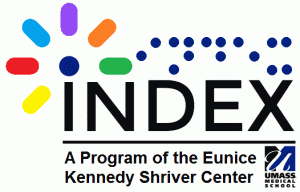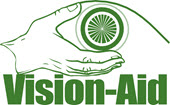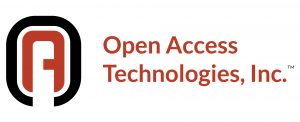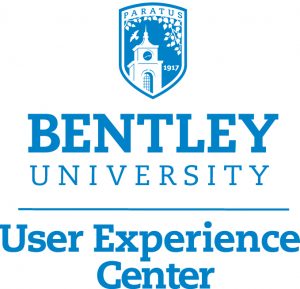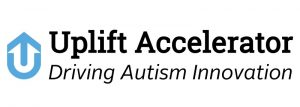Speakers (2015)
 Mike Paciello (Keynote Speaker)
Mike Paciello (Keynote Speaker)
Mike has been a pioneer and influential figure in the accessibility industry for more than two decades. He wrote the first book on web accessibility and usability (Web Accessibility for People with Disabilities), and has since achieved many notable milestones.
Mike is co-chair of the United States Federal Access Board’s Telecommunications and Electronic and Information Technology Advisory Committee (TEITAC), co-founder of the International Committee for Accessible Document Design (ICADD), and was recognized by President Bill Clinton for his contribution to the W3C Web Accessibility Initiative.
Mike has been featured in numerous publications including the Washington Post, Boston Globe, and New York Times. He was also invited by the United Nations to speak at the Global Initiative for Inclusive Information and Communication Technologies (G3ict).
Peter Fay
 Peter works in IBM Research in the Human Ability and Accessibility Center and has responsibilities for business partners and advocacy organizations. His current focus is on working with partners and advocacies to bring IBM AbilityLab research assets to market. Over his 18+ years with IBM, he has worked in IBM Software Group, focused on collaboration solutions, and in IBM Global Technology Services, focused on unified communications. Prior to coming to IBM, Peter worked for a number of software companies in the Boston area. He holds a Bachelor of Arts degree from Boston College.
Peter works in IBM Research in the Human Ability and Accessibility Center and has responsibilities for business partners and advocacy organizations. His current focus is on working with partners and advocacies to bring IBM AbilityLab research assets to market. Over his 18+ years with IBM, he has worked in IBM Software Group, focused on collaboration solutions, and in IBM Global Technology Services, focused on unified communications. Prior to coming to IBM, Peter worked for a number of software companies in the Boston area. He holds a Bachelor of Arts degree from Boston College.
 Preety Kumar
Preety Kumar
Preety Kumar, CEO of Deque Systems, Inc. (Deque), co-founded Deque in 1999 to pave the way for digital equality both from both user and the technology perspectives. Under Preety’s vision and leadership, Deque has developed a uniquely robust suite of software tools that include WorldSpace and Amaze and become a market leader and a thought leader in digital accessibility software and services. In June 2013, Deque was awarded the Computerworld 21st Century Achievement Award for Innovation for the Amaze technology, and the company has been recognized four times in the Inc. 5000 List of America’s Fastest Growing Companies.
Preety was recognized for her contributions to the field of accessibility by being offered the position of vice-chair of the GSA-sponsored Accessibility Forum. She serves on the board of the USBLN, the International Association of Accessibility Professionals (IAAP), and the Yes I Can Foundation. Preety is an active member of the World Wide Web Consortium, and is a member of Women in Engineering, Women in Technology, Northern Virginia Technology Council, IEEE, and the Association of Computing Machinery. Preety is also a contributing author to a book published by the United Nations G3ICT to promote information accessibility to countries around the world.
 Sarah Bourne
Sarah Bourne
Sarah E. Bourne is the Director of IT Accessibility for the Commonwealth of Massachusetts, where she works on accessibility policy, standards, and guidance for development and procurement for internal and public systems. These efforts started with creating accessibility guidelines in 1998 as the Commonwealth’s first webmaster.
She is a co-founder and organizer of the annual Boston Accessibility Conference.
Kathy Wahlbin
 Kathy Wahlbin, CEO and Founder of Interactive Accessibility, is an accessibility expert in ADA, Section 508, and W3C WCAG 2.0 compliance. Kathy is an experienced digital media professional with extensive knowledge of accessibility and usability issues and solutions. She is passionate about creating a world where online communications and technology are simple and universally accessible to all people regardless of ability. Kathy is the co-chair for the W3C Mobile Accessibility Taskforce, is the chair of the International Association of Accessibility Professionals (IAAP) Individual Professional Development Committee, and is an invited expert on the W3C WCAG 2.0 Working Group and WCAG 2.0 Evaluation Methodology Task Force.
Kathy Wahlbin, CEO and Founder of Interactive Accessibility, is an accessibility expert in ADA, Section 508, and W3C WCAG 2.0 compliance. Kathy is an experienced digital media professional with extensive knowledge of accessibility and usability issues and solutions. She is passionate about creating a world where online communications and technology are simple and universally accessible to all people regardless of ability. Kathy is the co-chair for the W3C Mobile Accessibility Taskforce, is the chair of the International Association of Accessibility Professionals (IAAP) Individual Professional Development Committee, and is an invited expert on the W3C WCAG 2.0 Working Group and WCAG 2.0 Evaluation Methodology Task Force.
 Cliff Tyllick
Cliff Tyllick
Cliff Tyllick has worked on accessibility since 1998 for Texas state agencies and AT&T. Before he worked on accessibility, Cliff edited documents and developed websites that helped lawyers, lab techs, and even truck drivers find the answers to 3 questions:
- Does this law apply to me (or my client)?
- What does it require us to do?
- If we think of a better way to comply, how can we tell whether it works?
So Cliff’s greatest interest in the field of accessibility has been to make it easier for all of us to do our jobs faster, better, and more easily. Have you seen an accessibility tab for Microsoft Word? If you’ve used it, have you found that it does make it easier to make your documents accessible? If so, then you know how well Cliff’s creations can improve your life on the job.
Cliff is now an accessibility specialist with the Texas Department of Assistive and Rehabilitative Services. You can follow him on Twitter (@clifftyll) or on LinkedIn. (If you ask to connect on LinkedIn, please mention that you met at a11ybos 2015.)
 Molly Watt
Molly Watt
Molly Watt is 21 years old from Maidenhead, a small town southeast of London, and she has Usher Syndrome—she is deafblind.
Molly is oral, although she was born deaf and got her first analogue hearing aids at 18 months to enable her to access sound and to learn communication skills. She has relied on assistive technology since she was diagnosed with Usher Syndrome at age 12. She started losing her sight and has been deafblind since she was 14. She relies on technology and her trusty guide dog Unis.
Molly actively began raising awareness of Usher Syndrome when she was 14 years old. Due to her reliance on assistive technology, she has become very knowledgeable about accessibility needs, and she voices her opinions regularly via her widely-read blog. For example, read about her experiences with the Apple Watch, where she demonstrated to the world how important accessibility is to those with sensory impairment.
As a result of her blog, she was recently fitted with ReSound LiNX² hearing aids, which have further transformed her hearing. Such enhancements are truly life changing and she advocates this sort of technology and accessibility for all.
Spearheading her own charity in the UK, she and her small team raise awareness of Usher Syndrome and its many challenges as well as fundraising to help others with small items of enhancing equipment. Molly is also an Ambassador for Sense, a UK Deafblind Charity.
A published author and illustrator of a children’s book and a regular keynote speaker at various organizations, schools, and events, she has also spoken at The Houses of Parliament in London and at Harvard Medical School in Boston. Molly is regularly called upon for her opinions on accessibility features and always happy to help if it allows not just the Usher Community to benefit but all, particularly those with disabilities or the elderly whose needs are often similar to those of the deafblind.
Molly says, “I simply want to make a difference, however small.”
Read about her trust and catch up with her blog articles.
John Rochford
John has been developing accessible websites, web applications, and online courses since the early 1990s. In 2009, he started exploring and experimenting with best practices of web accessibility for people with cognitive disabilities, particularly intellectual disabilities.
John is a program director and a faculty member of UMass Medical School’s Eunice Kennedy Shriver Center, a research, education, and service center for people with intellectual disabilities. John is also a co-founder and a co-organizer of the Boston Accessibility Group.
 Dr. Ping Chen
Dr. Ping Chen
Dr. Ping Chen is an Associate Professor of Computer Engineering and the Director of Artificial Intelligence Lab at the University of Massachusetts Boston. His research interests include Bioinformatics, Data Mining, and Computational Semantics. Dr. Chen has received five NSF grants and published over 50 papers in major Data Mining, Artificial Intelligence, and Bioinformatics conferences and journals. Dr. Ping Chen received his BS in Information Science and Technology from Xi’an Jiao Tong University, MS in Computer Science from Chinese Academy of Sciences, and Ph.D in Information Technology at George Mason University.
 Tong Wang
Tong Wang
Tong Wang is a Ph.D student of Computer Science at the University of Massachusetts Boston. Advised by Dr. Ping Chen, he is a Research Assistant, and his research area is in Natural Language Processing, Machine Learning, Topic Model, and Deep Learning. He received his Master’s degree from Northeastern University, majoring in Computer Systems Engineering. And he received his B.S degree from Huazhong Agricultural University, majoring in Information and Computing Science.
 Dale Cruse
Dale Cruse
Dale Cruse is Deque’s Inclusive User Experience team lead. He’s the author of HTML5 Multimedia Development Cookbook and the technical editor of five more HTML5 books. Twenty years ago, he began his career among an early group of U.S. Army photojournalists posting their work online. Since then, he’s written for CBS News, was featured in The New York Times, and built more than 75 high-profile client websites. Together with his new wife and ridiculously photogenic Maine Coon cat, Dale lives in a historic Boston loft. You can’t get him to shut up on Twitter at @dalecruse.
 Sassy Outwater
Sassy Outwater
A totally blind brain tumor patient, Sassy Outwater’s life runs on cool things like talking phones, braille displays, ebooks, and things we haven’t even thought up yet that continually revolutionize what the word “disability” means, and more importantly, how those with disabilities do daily life.
These brilliant inventions are available; how we use them to benefit companies, employees, customers, and consumers is the only thing still in question, and Sassy, through Blind Chick, brings businesses, technology, and people with disabilities together to make life easier and more profitable for everyone.
Her work with companies in audio technology, publishing, fashion, health and beauty, retail, healthcare, and entertainment has earned her a reputation for thinking outside the box and pioneering new ways of approaching old digital accessibility challenges. From online retail for the blind fashionista to developing audio engineering solutions for disabled music technologists, Sassy uses Blind Chick to redefine how businesses and consumers come together when accessibility and user experience intersect with the bottom line.
 Dylan Barrell
Dylan Barrell

